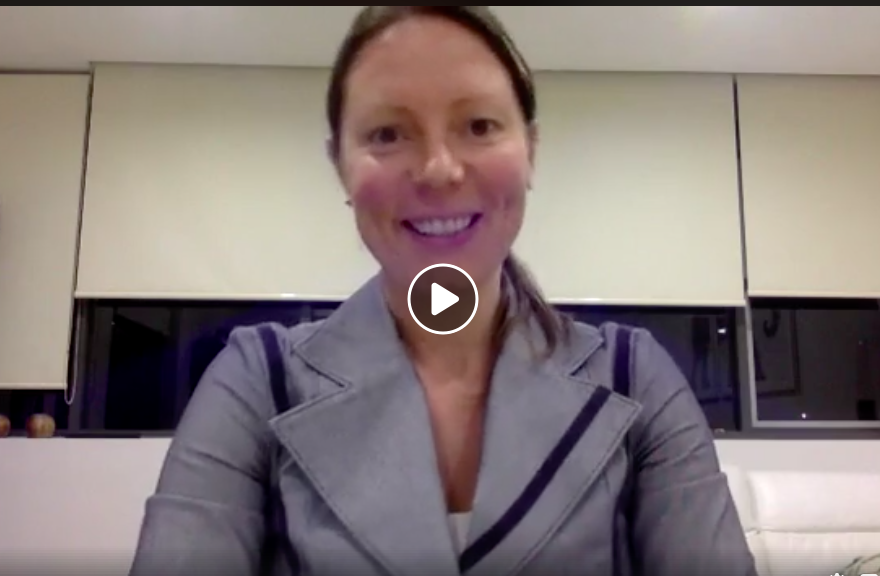And how to write super relevant blogs that insight curiosity and inspire further action
There are a lot of blogs out there on how to write blogs. But how you will write a blog really depends upon what purpose you want the blog to be for. That means making a decision or two about who you want to write it for and to what end? Do you want it to get you more one on one clients? Do you want it to show case your knowledge/expertise and writing style to potential publishers you might want to contribute articles to? Do you want it to appeal to certain companies, who you might like as sponsors, who pay you to review products or services? For a hobby, you write what you want to write for the sake of writing it, for a business, you make a decision about the purpose and the end goal and where along the sales sequence of events your blog will fit into that chain as a tool. That being decided upon, when it comes to then writing the actual blogs themselves, one of the absolute simplest ways you can write a blog is to start by thinking one market, one problem, one solution.
You may also like to include a call to action at the end of it. What is one of those, in case you're not familiar with that marketing terminology, it's basically an invitation to do some more work with in a certain capacity. Rather than assuming and leaving it up to your audience to contact you if they want to know more, you be pro-active in offering a point of continuity. If you ever get worried about feeling too salesy, try and think of it like this....you're a Practitioner/Consultant/Professional of some kind, you just opened a can of worms of potential questions regarding the client's problem/s that now need answering/further exploration following that blog, if the client wants support in answering them, what are their options for engaging with you further? You're not being pushy to give them an option, you're a) being of service b) educating them about your services through your blog and c) you're honouring your duty of care too. How or where do you come up with a list of problems? Regardless of wether you're in start up or have already had a few decades of experience that have given you clarity about WHAT your area of expertise already is, regardless of wether you start with a list of topics you know about or a list of problems you can solve, for a blog to be effective, you need to make a decision about who cares about those things and needs those problems solved on the way to achieving their aspirations. And, you need to make sure that you divide that list into the problems that YOU know that they have and the problems that THEY are aware that they have. Because sometimes when someone is NOT succeeding in achieving the thing they want to achieve (eg the one experiencing the problem) it's like they are the guy in the boat on the surface of the river. However, you, through your training and experience, have the amazing super power ability to both fly above like an eagle and see things from that perspective, as well as land on the boat and see at the eye level of the boat, as well as dive under the water and see what's going on underneath the boat. The guy on the boat might not know why on earth you're blogging about underwater obstacles they might run aground on or that might seize the engine, when all they can see is clear open water ahead, until you give them the practitioner equivalent of a depth finder and the ability to detect and hence make decisions about avoiding said hazards. Thus to get them to recognise the value of your knowledge and warning in this instance, you need to start by talking in terms that relate to what THEY see and know about, then link it to what you know and how you can fix that. How do you create a list that also includes the problems that they KNOW that they have? A) You could reference PAST CASE NOTES/CASE STUDIES (or case studies if you’re not long out of study) for past client problems you might have forgotten about and to check up on the details on how they described their problems. B) SURVEY PRESENT CLIENTS or people from another market you're considering on what their current greatest challenges are right now, ideally a combination of written survey or poll questions and verbal interviews. Add the problems that come out of your research to your list. C) Check out ONLINE GROUPS on social media that your target market spend time in or that already relate to their existing problems and aspirations, to see what problems they're talking about right now. Add those to your list. D) Check out the NEWS, CURRENT AFFAIRS TV PROGRAMS, ONLINE CHANNELS and WEBSITES, as well as the local and national PRINT MEDIA websites in your area too to see what's topical and trending right now. Check both the articles, episodes and the feedback on them for clues. They're great for quick, last minute inspiration and it's more material for the long term list. E) Check out the PEAK BODIES, ASSOCIATIONS, PROFESSIONAL JOURNALS and any GOVERNMENT or EDUCATIONAL BODIES in your industry for RECENT PUBLICATIONS and RESEARCH relating to issues impacting upon your target market. You might also want to add those to your supporting research and or reading lists, as well as your list of your audience's problems. F) Have an email address just for subscriptions to OTHER EXPERT'S EMAIL CONTENT, where you keep up to date on other industry experts and what trends they’re noticing and problems they’re talking about. Are you seeing them too? What do you agree with or not agree with that they're saying? What would you add? Add those ideas to your list. And last, but not least: G) MEDITATE ON IT and ask for guidance on what your audience needs right now and how you can be of service to them. You could also request signs from life over the coming days to further clarify, from potential and existing clients and any interactions you have with them that give you ideas. And add those to your list too. NOW SOLVE for X Now, it's time to use everything you know, all your training, experience and do some research to come up with solutions for each problem on this magical list. And solve them. Only, before you completely freak out at the size of that task, remember, you don’t have to do this all at once. The idea is to work on this over time with clients and in between clients when you have some time you can regularly block out for it. Depending on how much blog content you're planning for and for how long in advance, you might in your progressive spare time come up with 52 little and big problems your target market/s face (one for each week of the year) or 26 for fortnightly or 12 for a monthly newsletter style one. The list simply gives you a point of focus to start from and then you can plan accordingly from there. As you're working over time, you might also start to notice the patterns, or natural sequences of an order in which they move through them? That might be what your programs and future books, talks, workshops etc cover. But let's not get ahead of ourselves. First, you can use your blog or vlog to TEST YOUR IDEAS. SHARE THEM, SEE WHAT RESONATES, WHAT DOESN'T with your audience and later you'll build these things based on that. One last thought on FORMAT If you're interested in one day having your writing published, i'd also do some research on your FAVOURITE PUBLICATIONS or ones that relate to your industry and find out what their criteria and preferred formats are for submitting articles. You may wish to start writing a few blogs in that format, to that length. Any that don't get through, you can still potentially publish as blogs. A few final points to remember: Aim for high quality but don't get stuck in trying to make them perfect. No matter what you do, your knowledge and understanding of the same set of problems will evolve over time. One day, you'll look back on the one's you did 3 years back, eye roll and go "OMG, really? I said that? It so should THIS now!" Or you'll add steps or take out or simplify some things. It's normal, it will happen. Your clients still need right now though the version you KNOW right now. Have fun, this is your chance to be be creative, as well as do the detective work needed to be of service, try and enjoy the creative process, as much wishing for the expert outcome If you have any questions, just let me know. This might too be one of the kinds of things we can soundboard out one on one in my 1 year mentoring program, in those moments where you need a wise business sage to help you either plot the course around the obstacles ahead or, for those occasional program and content design and delivery moments where you feel like you've temporarily run aground. If you'd like to know more, you can get in touch, here. Thanks so much for tuning in. Until next time, have fun, take care. Nat |
WriterActress, Artist, Singer, Coach, Facilitator, Speaker, Writer Nat Ferrier talks about self expression, Women’s Leadership Mindset & communicating with greater confidence, presence & psychological safety. Archives
March 2024
Categories |


 RSS Feed
RSS Feed